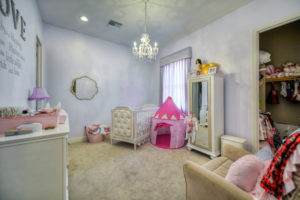 By Joe Szabo, Scottsdale Real Estate Team
Creating a fantasy escape at home is an excellent way to surprise your significant other or a treasured friend. An inexpensive solution to date night, this at-home indoor picnic is a recipe for romance and a chance to just relax.
It’s all about comfort, ordering in from your favorite restaurant (Thai is a great choice), and setting up a movie night or romantic playlist.
Leave those work-week vibes at the door, and spread out with popcorn, a spiked Thai iced tea, and some mood-setting accents. The floor pillows, layered blankets, and picnic side crates all transport you to another place. This great setup delivers much needed hang-time, with no commute and no stress.
Re-plating takeout means one less trip to the grocery store, and no mad dash to make a reservation in time. Pair your meal with a lovely cocktail or special libation. If you’ll be ordering sushi, grab a bottle of sake, and if Southern comfort food is on the menu, just grab some seasonal brews.
Cheers to a lovely night in. Hope you made it a special one!
By Joe Szabo, Scottsdale Real Estate Team
Creating a fantasy escape at home is an excellent way to surprise your significant other or a treasured friend. An inexpensive solution to date night, this at-home indoor picnic is a recipe for romance and a chance to just relax.
It’s all about comfort, ordering in from your favorite restaurant (Thai is a great choice), and setting up a movie night or romantic playlist.
Leave those work-week vibes at the door, and spread out with popcorn, a spiked Thai iced tea, and some mood-setting accents. The floor pillows, layered blankets, and picnic side crates all transport you to another place. This great setup delivers much needed hang-time, with no commute and no stress.
Re-plating takeout means one less trip to the grocery store, and no mad dash to make a reservation in time. Pair your meal with a lovely cocktail or special libation. If you’ll be ordering sushi, grab a bottle of sake, and if Southern comfort food is on the menu, just grab some seasonal brews.
Cheers to a lovely night in. Hope you made it a special one!
Treat Someone Special to a Romantic Indoor Picnic By Joe Szabo, Scottsdale Real Estate Team
 By Joe Szabo, Scottsdale Real Estate Team
Creating a fantasy escape at home is an excellent way to surprise your significant other or a treasured friend. An inexpensive solution to date night, this at-home indoor picnic is a recipe for romance and a chance to just relax.
It’s all about comfort, ordering in from your favorite restaurant (Thai is a great choice), and setting up a movie night or romantic playlist.
Leave those work-week vibes at the door, and spread out with popcorn, a spiked Thai iced tea, and some mood-setting accents. The floor pillows, layered blankets, and picnic side crates all transport you to another place. This great setup delivers much needed hang-time, with no commute and no stress.
Re-plating takeout means one less trip to the grocery store, and no mad dash to make a reservation in time. Pair your meal with a lovely cocktail or special libation. If you’ll be ordering sushi, grab a bottle of sake, and if Southern comfort food is on the menu, just grab some seasonal brews.
Cheers to a lovely night in. Hope you made it a special one!
By Joe Szabo, Scottsdale Real Estate Team
Creating a fantasy escape at home is an excellent way to surprise your significant other or a treasured friend. An inexpensive solution to date night, this at-home indoor picnic is a recipe for romance and a chance to just relax.
It’s all about comfort, ordering in from your favorite restaurant (Thai is a great choice), and setting up a movie night or romantic playlist.
Leave those work-week vibes at the door, and spread out with popcorn, a spiked Thai iced tea, and some mood-setting accents. The floor pillows, layered blankets, and picnic side crates all transport you to another place. This great setup delivers much needed hang-time, with no commute and no stress.
Re-plating takeout means one less trip to the grocery store, and no mad dash to make a reservation in time. Pair your meal with a lovely cocktail or special libation. If you’ll be ordering sushi, grab a bottle of sake, and if Southern comfort food is on the menu, just grab some seasonal brews.
Cheers to a lovely night in. Hope you made it a special one!

 By
By  By
By  By
By  By
By  By
By  By
By  By
By  By
By  By
By 

